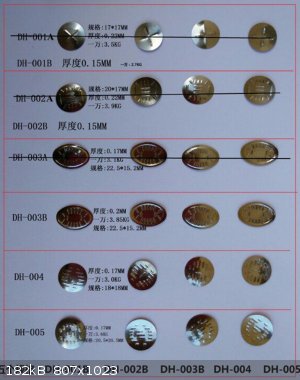RogueRose
International Hazard
    
Posts: 1585
Registered: 16-6-2014
Member Is Offline
|
|
Strong endothermic reactions like Urea, AN and others - which is strongest?
I have to say that when I added water so anhydrous sodium acetate I was amazed at how cold it got, I think it was at least on par with ammonium
nitrate and more than urea.
I know the following are endothermic when reacted with water:
ammonium nitrate
Calcium nitrate
Urea
Calcium Ammonium Nitrate
What I'm interested in is other compounds that produce similar endothermic effects, especially those that produce very strong cooling. I'm also not
sure what the terminology or characteristics that determine how much heat is absorbed when it is hydrated. So if AN absorbs something like 400Kj/KG
and Urea only 190Kj/KG, the AN will absorb MUCH more heat. I'm trying to find out what characteristics in the Wiki posts that state this - as well
if there is an absolute lowest temp that can be reached - such as one compound can reduce temp to -20F while another will only reach 0F or something.
So I'm looking at what I need to study to understand the theory behind this.
So I'm trying to find out how much more cooling AN generates than Urea for the same mass - what numbers do I need to look at to determine these
things, so I can look at other compounds and see what other compounds might work to do similar effects.
Conversely, I'm interested in the opposite, heating, which I suspect things like KOH, NaOH, CaO would all work to produce heating effects (not
rechargable like NaOAc) but would be good for a one time use.
Now for the odd Sodium acetate which first cools and then once dissolved (super saturated) it will then produce heat! That is worth studying and
understanding.
On a side note, I found these "nucleation discs" used in sodium acetate heating packs but I'm not sure which ones would be best b/c they look fairly
different. Does anyone have experience with these? Is there another method to initiate the crystalization w/o these discs and w/o opening the pack
and putting in a crystal to start the process? Is there some kind of other metal or substance that would work as well?
here are some of the nucleation disc's I found from the only seller online (minimum order of 50,000 units thought). I'm seeing if I can get a small
trial order of about 50 of each (so about 300-500 units). If anyone is interested in some of these, I can probably send some of them if the seller
will ship them to me.

[Edited on 12-29-2018 by RogueRose]
|
|
|
fusso
International Hazard
    
Posts: 1922
Registered: 23-6-2017
Location: 4 ∥ universes ahead of you
Member Is Offline
|
|
Enthalpy change of solution & hydration are probably the terms you want?
Some substances can contain water of crystallisation so the enthalpy change may be different.
These 3 rxns have different enthalpy changes:
NaOAc(s)+3H2O(l)=NaOAc.3H2O(s)
NaOAc.3H2O(s)=Na+(aq)+OAc-(aq)+3H2O(l)
NaOAc(s)=Na+(aq)+OAc-(aq)
Energy absorbed/released per unit mass is different from that per mole.
kjmol-1=kjkg-1⋅kgmol-1
[Edited on 181229 by fusso]
|
|
|
Ubya
International Hazard
    
Posts: 1232
Registered: 23-11-2017
Location: Rome-Italy
Member Is Offline
Mood: I'm a maddo scientisto!!!
|
|
https://en.m.wikipedia.org/wiki/Enthalpy_change_of_solution
i see you need to dig into thermodynamics quite a bit, i'm quite bad at it so wikipedia would be better than me for sure.
just follow the rabbit hole.
as why sodium acetate solution first cools and then heats up as it crystallizes the answer is:
when you dissolve a salt in a solvent, the (in this case) ionic bond first breaks (endothermic), solvent bonds break (endothermic) and then a
solvent-salt ion bond creates (exothermic), crystallization is the opposite. in case of sodium acetate dissolution the energy given from the
exothermic reaction is less than the sum of the 2 endothermic reaction, so the net reaction is endothermic, when the solution crystallizes the
opposite happens, the sum of the endothermic processes is less than the exothermic ones.
---------------------------------------------------------------------
feel free to correct my grammar, or any mistakes i make
---------------------------------------------------------------------
|
|
|
Σldritch
Hazard to Others
  
Posts: 309
Registered: 22-3-2016
Member Is Offline
Mood: No Mood
|
|
Sodium Peroxydisulfate has the strongest cooling effect i have felt from any compound dissolving in water though i have not really searched for any
others nor have i tried Ammonium Nitrate. This is interesting i will have to try some tomorrow.
|
|
|
CharlieA
National Hazard
   
Posts: 645
Registered: 11-8-2015
Location: Missouri, USA
Member Is Offline
Mood: No Mood
|
|
You might find this helpful.
https://www.chemguide.co.uk/physical/energetics/solution.htm...
|
|
|